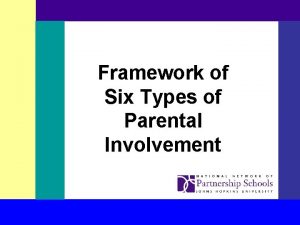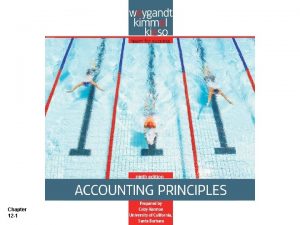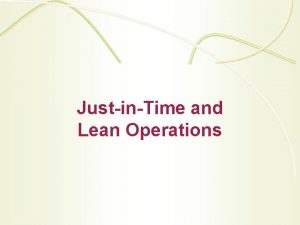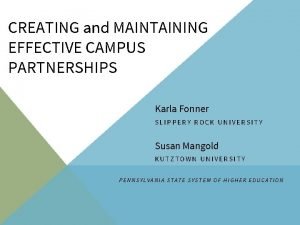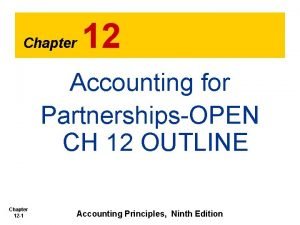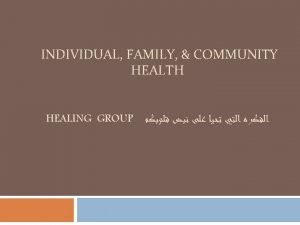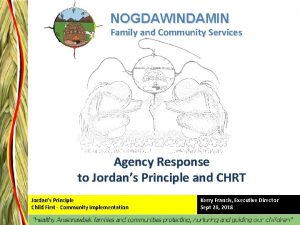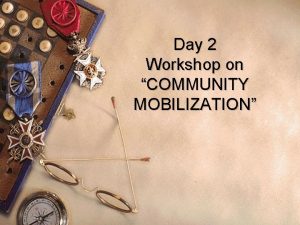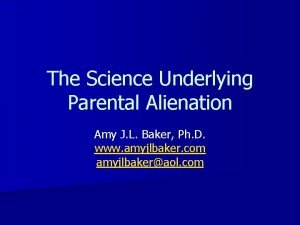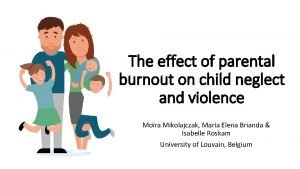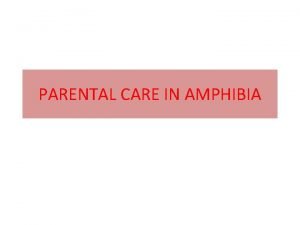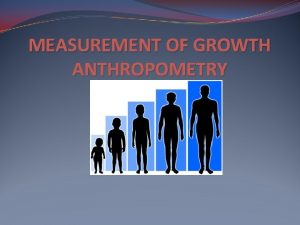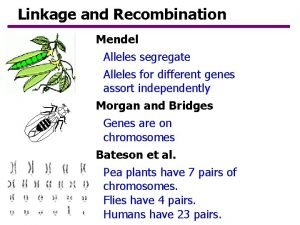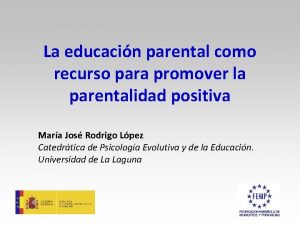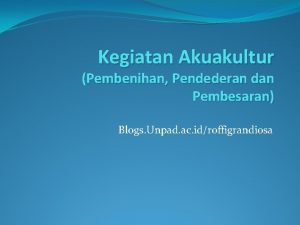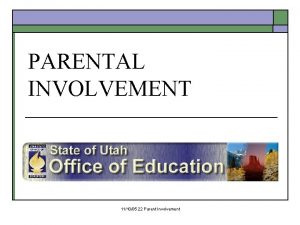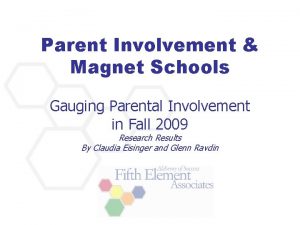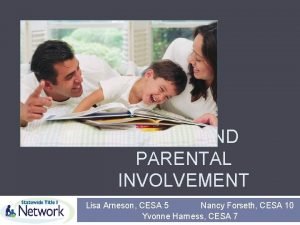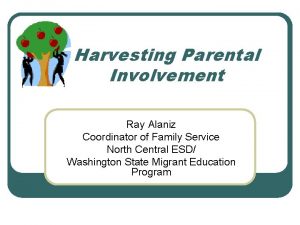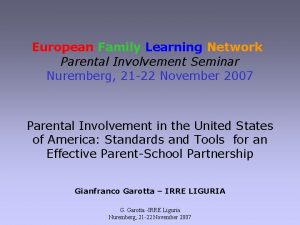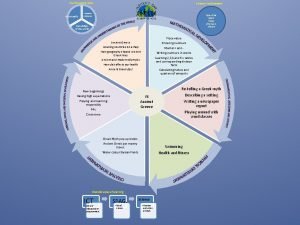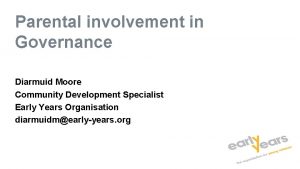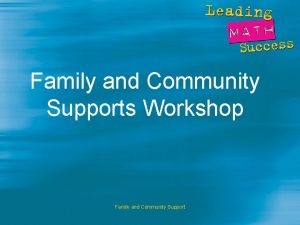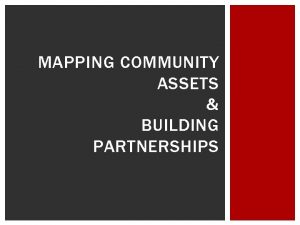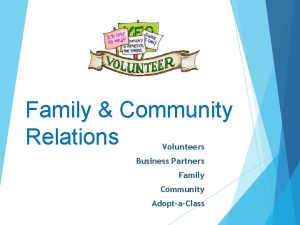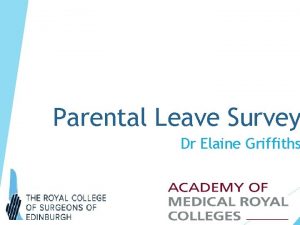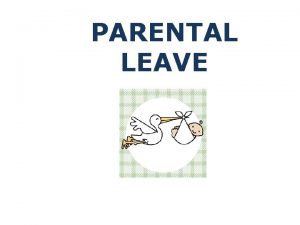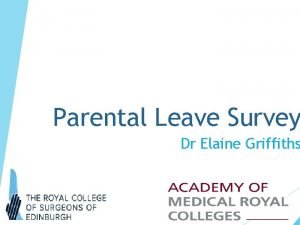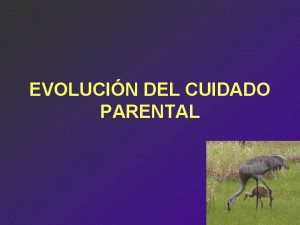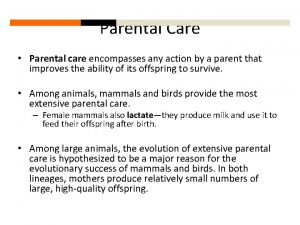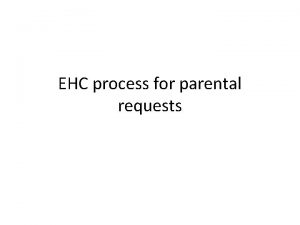PARENTAL INVOLVEMENT FAMILY AND COMMUNITY PARTNERSHIPS Parental Involvement

























- Slides: 25

PARENTAL INVOLVEMENT FAMILY AND COMMUNITY PARTNERSHIPS

Parental Involvement on Children’s Education What works in Hong Kong Esther Sui-Chu Ho Wai-Man Kwong • “the definition of parental Involvement varies, and that there are limits to the ways that parents can be involved in school education and the degree of involvement they are willing to undertake” • “We know very little about how schools , teachers and parents understand the meaning and value of parental involvement” • “Nor have we profiled and accounted for the diverse forms of parental involvement in our schools “ http: //link. springer. com. cyber. usask. ca/chapter/10. 1007/978 -981 -4021 -999_1/fulltext. html

Why do it? • Research studies conducted in the United States, Britain and other European countries show that promoting parental involvement at home or in school has significant benefits such as enhancing student achievement, reducing absenteeism and school dropout rate, and improving homework habits (Epstein 1990, 2011; Ho and Willms 1996; Lareau 1989; Wolfendale 1992).

Who does it? Joyce L. Epstein Ph. D • Joyce L. Epstein is director of both the Center on School, Family, and Community Partnerships and the National Network of Partnership Schools, and a research professor of education and sociology at Johns Hopkins University. Her research focuses on how leadership at the distinct and school levels affects the quality of a schools programs on family and community involvement and on results for students. In all of her work, she is interested in the connections between research, policy and practice. http: //education. jhu. edu/faculty/SOE_Faculty/joyce-epstein

HO. Sui-Chu, Esther • Director of the Hong Kong Centre for International Student Assessment. Project Manager of HKPISA-2000, 2003, 2006, 2009, 2012. Consultant of Macao-PISA 2003 and China-PISA 2006 Trial and Shanghai-PISA 2009 main study. Fulbright Scholar at Pennsylvania State University (2004) and Johns Hopkins University (2010); Research Associate of the project Education and Development in South China. Teaching assistant and research assistant in the University of British Columbia, Canada. Teaching consultant of the World Bank in the District Primary Educational Program in India. Primary and Secondary School teacher in Hong Kong. Research interests: Parental Involvement, Home School Community Collaboration, International Assessment of Student Performance, School Effectiveness and School Reform, Decentralization and School-based Management, Research Methodology in Education, Multilevel Analysis in Educational Research. http: //www. fed. cuhk. edu. hk/eap/en-GB/website/people/academic-staff? view=staff&id=5

Kwong, Wai-Man Dr. KWONG Wai Man (鄺偉文博士) B. Sc. , 1973, University of Hong Kong M. S. W. , 1975, University of Hong Kong M. Ed. , 1983, University of Toronto, Canada Ph. D. , 2002, University of Bristol, U. K. Associate Professor “I believe in bringing teaching, research, and practice together through collaborative inquires between and among practitioners, clients, researcher, and academics” http: //www 6. cityu. edu. hk/stfprofile/waiman. kwong. htm

What they do? • Epstein’s current empirical work with her colleagues at the Centre on School, Family, and Community Partnership in the United States identified six types of parental involvement: parenting, communication, volunteering, learning at home, decision-making, and collaboration with the community (Epstein 2011; Epstein et al. 2002). • This classification scheme is a comprehensive one and has been adopted as the national standard for parental involvement programs in the United States. Shen et al. (1994), http: //link. springer. com. cyber. usask. ca/chapter/10. 1007/978 -981 -4021 -999_1/fulltext. html

What they do! This book is based on the empirical work of a large-scale project to investigate the possible impacts of diversified forms of parental involvement on children and school by first exploring through a series of ethnographic case studies how principals, teachers and parents perceive and act on parental involvement http: //www. springer. com/us/book/9789814021982 ? wt_mc=Third. Party. Springer. Link. 3. EPR 653. About_e Book

How they do it? “exploring through a series of ethnographic case studies how principals, teachers, and parents perceive and act on parental involvement” http: //www. springer. com/us/book/9789814021982? wt_mc=Third. Party. Springer. Link. 3. EPR 65 3. About_e. Book

Ethnographic case studies • What is Ethnographic Research? Anthropologists, ethnographers, and other social scientists may engage in something called ethnography. Ethnography, simply stated, is the study of people in their own environment through the use of methods such as participant observation and face-to-face interviewing. https: //www. nps. gov/ethnography/aaheritage/ERCb. htm

Two broad categories that determine Parental Involvement • #1 individual factors such as parents’ social backgrounds, family structure and ethnicity • #2 institutional factors such as school policies, partnership practices and teachers’ attitudes http: //link. springer. com. cyber. usask. ca/chapter/10. 1007/978 -981 -4021 -999_1/fulltext. html

“Empirical evidence from Brown (1998), Coleman (1988, 1994), Ho and Willms (1996), Ho (2001), Hoover-Dempsey and Sandler (1997) and Lareau (1989) suggests that family socio-economic status, ethnicity and family structure appear to be the most powerful predictors of the extent of parental involvement in children’s education” “On the other hand, evidence from Brown (1998), Comer et al. (1996) and Epstein (1990, 2011) confirms that some schools can overcome barriers to such family constraints” “These studies demonstrate that when schools devolve substantial authority to parents and when teachers are more open to establishing partnerships with them, both parties are more likely to establish a high level of parental involvement” http: //link. springer. com. cyber. usask. ca/chapter/10. 1007/978 -981 -4021 -999_1/fulltext. html

How am I going to do it? • I am going to find out who and what I am dealing with, through a series of questions and graphs.

Which schools are we surveying? • As an indicator of socioeconomic status of schools, parents of government and aided schools are likely to be of middle or lowermiddle class. • Parents of students attending independent schools are likely to be from the upper-middle class. • Special schools are usually from the lowermiddle class.

Tables for truth School Characteristics School Size Number of Students Number of teachers Percentage of immigrant students Percentage of students with single parents Publicly funded school Special classes

Background of Teachers Background a. Gender Male Female b. Teaching experience (years) c. Teaching in this school (years) d. Homeroom teachers e. Class size Percentage

Background on Teachers Background f. Percentage of immigrant students in class g. Percentage of single parents in class h. Socio-economic status of class Upper middle class Middle class Lower middle class Lower class Percentage

Background on Teachers Background i. Highest Education Doctoral degree Masters degree Bachelor degree Collage Certificate Others Percentage

Background on Parents Background a. Gender Male Female b. Interviewee born in Canada c. Spouse born in Canada d. Number of children 1 2 3 4 5 6 more Percentage

Background on Parents Background e. Number of members who live together (including interviewee) 2 3 4 5 6 or more f. Person(s) who is responsible to educate children Mother is primarily responsible Father is primarily responsible Both parents are responsible Percentage

Background of Students Background a. Grade 2 3 4 5 6 b. Gender Male Female Percentage

Background of Students Background c. Place of birth Canada Foreign countries d. Number of siblings (including the interviewee) one two three four five Six or more Percentage

Background of Students Background e. Persons(s) that live together Father Mother Siblings Grandfather/grandmother Uncle/aunt Others Percentage

Background of Students Background f. Persons who attend parent-teacher conference Father Mother Grandfather Grandmother No one Others Percentage

 Theoretical framework about parental involvement
Theoretical framework about parental involvement Gaisce.ie
Gaisce.ie Accounting for partnerships chapter 12 solutions
Accounting for partnerships chapter 12 solutions Accenture barclays project
Accenture barclays project Word partnerships
Word partnerships Product development partnerships
Product development partnerships What is jit
What is jit Maintaining effective partnerships
Maintaining effective partnerships Account www.publicpartnerships.com
Account www.publicpartnerships.com Epsrc prosperity partnerships
Epsrc prosperity partnerships Chapter 12 accounting for partnerships answers
Chapter 12 accounting for partnerships answers Family and community health advisor
Family and community health advisor Includes the individual and the family community is
Includes the individual and the family community is Duke family medicine and community health
Duke family medicine and community health Nogdawindamin jobs
Nogdawindamin jobs Conjugal family
Conjugal family Prepare to scale up in social mobilization
Prepare to scale up in social mobilization Amy baker parental alienation
Amy baker parental alienation What does burnout feel like
What does burnout feel like Recombinant vs parental
Recombinant vs parental Parental care in amphibia
Parental care in amphibia Horizontal
Horizontal Ma tefra
Ma tefra Parental vs recombinant
Parental vs recombinant Programas de educación parental
Programas de educación parental Pembenihan pendederan pembesaran
Pembenihan pendederan pembesaran
